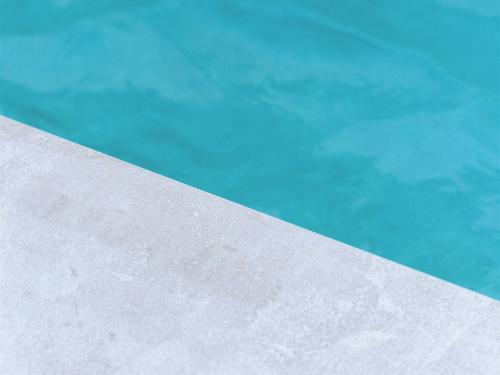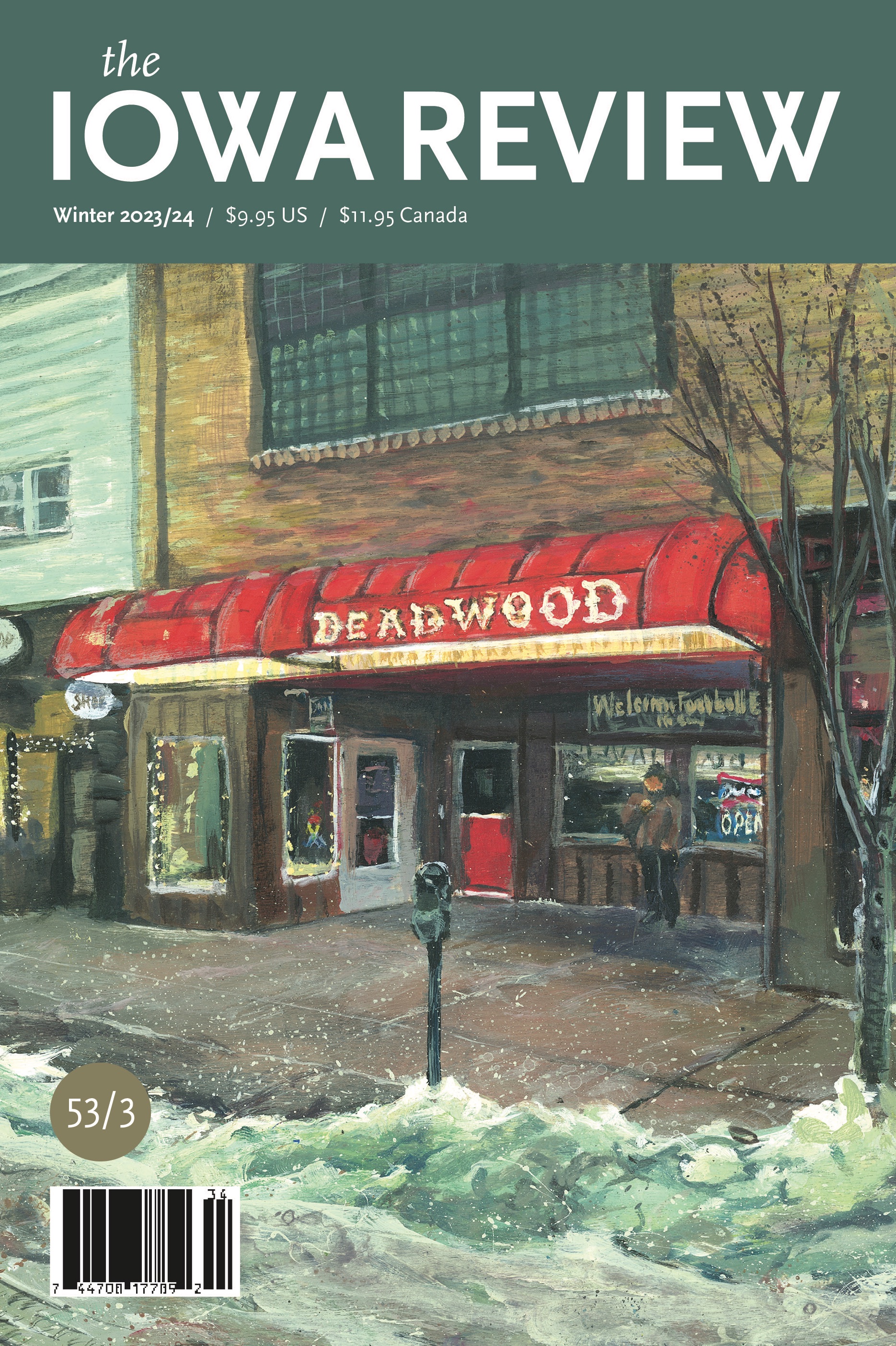
Today, I painted after a month. When I don’t paint, I think about it a lot. I stress out about not painting. I build things in my head. I make mental notes every hour of every day. Right now, the new painting looks like fire. Black, orange, blue.
I wanted to make something that invoked belonging or, in contrast, exclusion. Instead, I painted fire. It could either be a Shiva-the-destroyer-style fire, or perhaps it’s a mind and path clearing type of aspirational incandescence. “Consumed all impediments, and become incandescent,” wrote Virginia Woolf at some point before the Ouse drank her in.
I’m feeling rather peckish.
I spend a decent amount of time at the swimming pool in my building. It’s beautiful and one of the main reasons I decided to shell out more money to rent a flat here. I needed that pool. You can see lush green jungles down the hillside with the sea below, even the occasional family of wild boars as they walk single file along the coastal road. I live in Hong Kong, and while you might think it’s all skyscrapers, this is daily life here too.
The pool has a glorious blue tile, though it keeps coming undone. The other day a tan French kid cut himself and crawled out of the pool with blood streaking down his leg. I watched his parents rush over, and then the lifeguard who sprang into motion after realizing the parents would want him to, and then I continued to swim my laps because the pool was especially beautiful and Hockney-esque that day. For a swimmer, all the better if it was now empty, I thought callously. I wondered if a drop of his blood was in the pool, but hoped the chlorine would take care of it.
I now own a lot of swimsuits and swim goggles. There’s a lady who also swims laps at the same time as me, who manages to look like she’s having a terrible time. I assume she isn’t actually because she swims every day. She’s as cross as I am if a pack of children starts dangerously roughhousing across the deep end, which she and I like to think of as our own. We aren’t friends. If I’m in the pool before her and take the deepest lane (or the idea of a lane, as there aren’t any), she swims aggressively close to me, so perhaps I’m just as annoying to her as the screaming kids.
My mother and I were in a taxi queue once, outside a hotel that is attached to a fancy mall. It’s a taxi queue that every mallgoer uses, as well as every hotel guest. A tall white guy with a florid face and a limp looking black suit stood outside in the heat with everyone, his face turning redder by the minute. I could see his mind churning as he scanned the Chinese and stray Indian people (us) in front of him in the queue. Finally, he burst out in an anguished yelp and protested, loudly, that he shouldn’t have to stand in line. When things like this happen, I wish I could just forget, but then I don’t, so I may as well remember and tell the tale on occasion. I always wonder if anyone will actually believe me. I’m sure this man had just finished a meeting in which he was a lawyer or a banker, a grown-up in a grown-up job, maybe with a family and children and friends and a sport he enjoys and a friend he feels proud of keeping around because they are “ethnic,” though I believe the preferred word is now “diverse.”
I’ve been drawing girls—women—who look like me, holding binoculars.
A white lady at the gym was very upset when I asked her if she would mind where she was walking because she kept trampling over my disinfected yoga mat (on which I, my body, was) in her shoes, when there was plenty of space around. So upset that she “got in my face” (I think that’s the term) until I could perceive spit flying out of her face—to tell me that I was being rude. She’s probably a mother of three about to have a lovely lunch after her gym session, who might belong to a book club that’s reading American Dirt. Or maybe she heads diversity and inclusion at a big company and is preparing a TED Talk. I don’t know.
My swim instructor—I retook swim lessons as an adult—told me I breathe too politely.
I eavesdropped on a conversation between a few girls in their early teens in the pool. Most wore bikinis, and the slightly older one wore a one-piece. The bikini-clad waifs hurled themselves into the pool, and the one-piece wearer said she wouldn’t jump in. “You do you honey,” they shouted back.
The binocular-holding girls look at things, but we are looking at them looking at things or looking at us. It’s painfully obvious as far as art goes; no need to look for clues. You can’t see their eyes, of course. They’re looking at you paying them less money than men.
I was jumping really high, blithely. “One last jump,” I said, “and let’s take a picture!”
When I was little I used to skate around an empty swimming pool ferociously, like I was in a competition. It’s a wonder that I didn’t fall in and break my neck or the other things that did eventually break—it literally was breakneck speed—but I didn’t. A lithe brown thing, zipping around a pool. Or a lithe brown thing running faster than other kids or a lithe brown thing who joined hockey to play a wing, flapping and airy and fast. Who could even see her clearly, sparks flying out of her eyes?
The beautiful score from Atonement by Marianelli is playing, and I love the cadence. Something is going to happen, something is moving. But I can’t run any more. So the score is true, it is sinister.
When I’m swimming, my mirrored goggles look like binoculars.
There are some people who will nod as I speak then cut me off and speak of something else. I wonder if I’m boring. Or maybe my voice is too soft, but I don’t know it.
I am so sensitive and so difficult.
I stopped with my family at an Indian restaurant in Maine because it had an outdoor patio with no people, and we had eaten too many lobsters the previous week, and because the Thai place had a bad rating, and because Covid was very much around and we wanted a safe outdoor space to quickly eat lunch on our way, and who doesn’t like a mango lassi on a hot day. I was mid-sentence, and a white couple walking past interrupted me to say the restaurant must be good because we were there, Indians in an Indian restaurant, wouldn’t ya know.
“What does she do for exercise usually, just walks and a bit of yoga, right?” the very expensive hatchet-wielder asked my husband as if I wasn’t there. He had recently drilled seven screws and a badly fitting Ikea-esque plate into my shattered ankle. Overnight hikes across Hong Kong’s hills and flipping tires my size at a dawn bootcamp.
“Yes, sometimes we sever some nerves while operating—it’s just how it is,” he smiled when I asked why my foot simply didn’t feel right. I spent weeks weeping with only over-the-counter paracetamol while my fragments fused together, hallucinating over the prescribed, exasperatingly-named Lyrica. Fuck you. So I went to Yellowstone in a wheelchair.
The other day, I was in the airport in Doha on my way to or from somewhere. Walking into the lounge, the staffer scanned my boarding pass as they do. As I made my way inside, a white man barreled past me without stopping to get his pass scanned. So empowered, we might marvel. Orange, black, blue.
Two other staffers tailed me as I headed toward the tiny tubs of hummus I like at this lounge and asked to rescan my boarding pass because their scanner was malfunctioning. The white man drank his beer in peace while I lost my head, scanning and rescanning.
“Ha, it’s bone on bone already! Do what you can while you can,” muttered the doctor with an office full of marathon photographs of himself. I paid him hundreds of dollars for his ten minutes of time as the running, jumping, climbing, hiking, kickboxing, trampolining me died.
“Didn’t they tell you to be careful? That this was a possibility with a bad break years later?”
“If I became pregnant, what would happen to my ankle?”
“Don’t worry about things like that!”
There’s no more cushion left. No wonder I am so sensitive. So very, very difficult.
I am learning to breathe rudely in the pool, bone on bone softened by the water, taking up two lanes with my goggles glinting. I don’t know if people can see me but I can see them, magnified.
